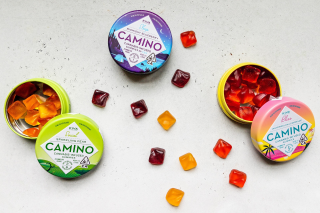Anxiety
Believe It or Not, You Can Overdose on Weed
If you think cannabis is basically harmless, you may need to think again.
Posted May 5, 2023 Reviewed by Ekua Hagan
Key points
- As more states legalize it, the overuse and abuse of cannabis products will inevitably increase, resulting in more cases of cannabis toxicity.
- Although eating cannabis, or edibles, doesn’t affect the lungs compared with smoking, accidental overdoses are more likely to happen.
- While most legal cannabis products list the amount of THC they contain, understanding what this means in terms of potency can be a challenge.

You may have some familiarity with the term “blacking out” due to alcohol consumption. The phenomenon refers to gaps in a person’s memory for events that occurred while they were intoxicated and involves memory loss even while they are awake and conscious (they can be moving around, interacting with others, and may seem okay to those around them). A fragmentary blackout, also known as a “grayout” or “brownout” combines gaps in memory with some recollection of events, rather than no recollection as is the case with a total blackout.[1]
If this is your first encounter with the term “greening out” it’s unlikely to be your last, as cannabis use becomes ever more accessible and mainstream. It refers to an acute anxiety- or panic-inducing high, more frequently involving edibles (cannabis-containing food products that you can buy or make yourself) than smoking weed. Greening out is actually a form of overdose or toxic reaction caused by consuming too much of a cannabis product, and can include symptoms such as confusion, dizziness, disorientation, visual impairments, weakness, anxiety, panic, paranoia, increased pulse rate and blood pressure, nausea, or vomiting.
The psychoactive ingredient in cannabis is tetrahydrocannabinol (THC), which causes a euphoric high but can also cause psychological reactions that include anxiety, fear, panic, or depression. The way it enters the body, whether by smoking weed or eating or drinking cannabis products in the form of gummies, chocolate bars, or baked goods, affects how much THC is absorbed. The amount of THC, or its concentration in edibles can be difficult to measure and is often unknown. Consequently, people who use edibles are sometimes unpleasantly surprised by their strength and long-lasting effects.
According to the World Health Organization, around 2.5 percent of the world’s population, or 147 million people, consume weed. As more and more states legalize it, the overuse and abuse of cannabis products will inevitably increase, resulting in more cases of cannabis toxicity, and in turn more emergency room visits and hospitalizations.[2]
A 2022 study that looked at more than 35,000 people in Canada found that people who reported using cannabis in the past year were more likely to have an ER visit or hospitalization than those who didn’t use it.[3]
How much is too much?
While most cannabis products that you can buy legally list the amount of THC they contain, understanding what this means in terms of potency can be a challenge. Moreover, if you’re consuming an edible that isn’t packaged commercially, it’s almost impossible to tell how much THC is in it, or in cannabis that is smoked. Generally, the likelihood of experiencing uncomfortable and potentially problematic effects is higher for first-time or infrequent users. However, even regular and veteran cannabis users sometimes experience anxiety, panic, and/or paranoia, with some (including professional clients as well as personal friends) reporting the sudden onset of these and other adverse effects, even after years of use.
A 2023 study in the journal Molecules at the Institute of Nutrition at Mahidol University in Thailand suggested that smoking 2 to 3 mg of THC can impair attention, focus, short-term memory, and executive functions including memory, thinking, and self-control.
More severe symptoms affect people who smoke more than 7.5 mg of THC, such as low blood pressure, panic, anxiety, delirium, jerking movements, and difficulties with balance and speech. The same study suggested that an oral dose of 5 to 20 mg of THC can impair short-term memory and executive functioning.[4]
Although eating cannabis, or edibles, doesn’t affect the lungs compared with smoking, accidental overdoses are more likely to happen. Also, it generally takes considerably longer for the mind- and mood-altering effects of edibles to begin to manifest—usually 30 minutes to two hours. As a result, people may take more, thinking they haven’t consumed enough, sometimes precipitating taking too much and greening out. Moreover, the high also lasts longer when eating cannabis relative to smoking it; depending on dosage the effects can last 6-12 hours before they subside. The duration of effects depends on several factors, such as body size, amount ingested, when food was last eaten, and interactions with medications or alcohol.
If cannabis use results in out-of-control behaviors, injury, or suicidal thoughts, people should seek medical help by calling 911 or going to the hospital. Those with underlying medical conditions or chronic illness, such as heart or lung disease, or diabetes, need to be especially aware of any symptoms of overdose, especially if these include shortness of breath or chest pain. Since THC intoxication can amplify symptoms of psychiatric disorders like depression, anxiety, PTSD, ADHD, bipolar disorder, and schizophrenia, it’s important for people with those conditions important to get emergency care in cases of overconsumption.
While psychotic episodes and serious medical problems are rare, cannabis-related reports to the U.S. National Poison Control increased from 2,951 cases in 2016 to 11,569 cases in 2020. From January to July 2021, 18 percent of exposures (119 of 661 cases) required hospitalization and 39 percent of the cases involved people under 18 (258 of 661 cases).[5]
What to do in the event of a "greenout"
Generally, cannabis toxicity improves on its own over time without medical intervention as cannabis is gradually and progressively metabolized and its effects subside. Unlike certain other substances, notably opioids—in the absence of other medical complications related to co-occurring conditions—an overdose of cannabis is highly unlikely to be fatal and most people do not need hospitalization. As long as someone can remain in a calm and safe environment, they will get through the greenout and be fine. When in doubt, it’s always advisable to seek medical assistance, and in more extreme cases of anxiety, panic, or paranoia, going to a hospital for observation with or without the administration of anti-anxiety drugs may be indicated.
When young children inadvertently consume cannabis products, rather than becoming agitated or paranoid, they tend to get lethargic, sleepy, and sometimes comatose. For them, observation in an urgent care or hospital setting is advisable for monitoring and to make sure their airways are not compromised. To prevent overdose and medical emergencies related to pets and children, the best practice is to keep cannabis secured and with its original packaging.
For those experiencing a greenout in the absence of a medical emergency, the following actions that create a calming environment can be beneficial:
- Decrease the overall amount of stimulation by dimming lighting, reducing the volume of music or other sounds, and turning off the TV. That said, soothing/relaxing music or calming sounds at low volumes may be helpful.
- Breathe intentionally by making your breathing slower and deeper, and breathing through your diaphragm/stomach.
- If you're familiar with them, practice meditation, utilizing a guided meditation app if necessary.
- If you can, call or text someone whom you are comfortable talking to about what you’re going through. If they can be with you in person, even better. Connecting with someone you trust and feel safe with can help to reassure you and decrease your symptoms of anxiety.
- Keep in mind, and remind yourself as necessary, that this experience is temporary—even if it lasts longer than you would like, it will pass.
Copyright 2023 Dan Mager, MSW
Image courtesy of: https://cbdoracle.com
If you or someone you love is contemplating suicide, seek help immediately. For help 24/7 dial 988 for the National Suicide Prevention Lifeline, or reach out to the Crisis Text Line by texting TALK to 741741. To find a therapist near you, visit the Psychology Today Therapy Directory.
References
[1] National Institute on Alcohol Abuse and Alcoholism. (2021, March). Interrupted Memories: Alcohol-Induced Blackouts.
[3] Vozoris NT, Zhu J, Ryan CM, et al, Cannabis use and risks of respiratory and all-cause morbidity and mortality: a population-based, data-linkage, cohort study BMJ Open Respiratory Research 2022;9:e001216. doi: 10.1136/bmjresp-2022-001216
[4] Kitdumrongthum S, Trachootham D. An Individuality of Response to Cannabinoids: Challenges in Safety and Efficacy of Cannabis Products. Molecules. 2023; 28(6):2791. https://doi.org/10.3390/molecules28062791




